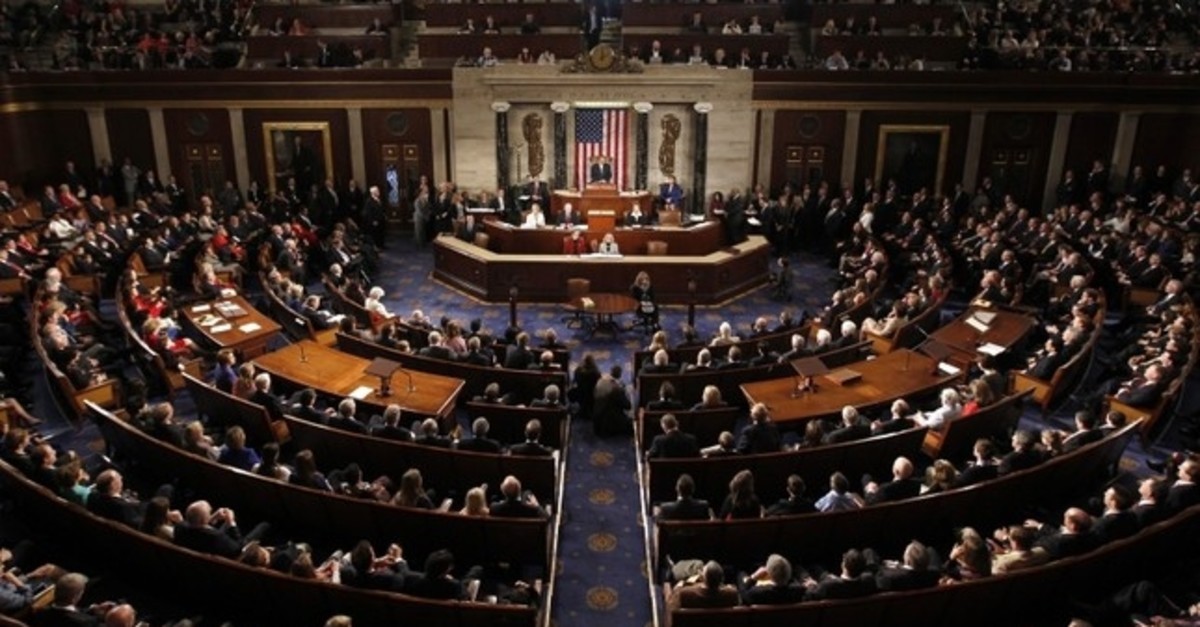Senators were poised Wednesday to pass the largest rescue package in modern US history for businesses and ordinary Americans devastated by the coronavirus amid fears that New York could be the next epicenter of the pandemic.
The United States now has over 62,000 confirmed cases, the third-highest number globally behind China and Italy. About half are in New York state.
“We still have the trajectory going up,” said New York Governor Andrew Cuomo, adding that about 12 percent of the people who test positive require hospitalization.
Cuomo said health officials anticipate about 120,000 coronavirus patients coming into New York’s hospitals, which have a capacity of 50,000 beds.
The state has around 30,000 confirmed cases, he added, with 285 deaths.
But the governor pointed to evidence suggesting New York’s strict stay-at-home orders and social distancing measures have slowed the hospitalization rate.
“The arrows are headed in the right direction,” Cuomo told reporters.
Just over half the US population is now under some form of lockdown as the authorities around the country seek to stem the outbreaks.
Birmingham, Alabama and Charlotte, North Carolina have become the latest major US cities to order residents to stay indoors.
Wall Street stocks were mixed as the markets awaited a vote on the $2 trillion package hammered out by congressional leaders to boost the US economy.
The Dow Jones Industrial Average rose by more than five percent before slipping back to a gain of 2.39 percent, at 21,200.55 points. The broad-based S&P 500 gained 1.15 percent to 2,475.56 and the tech-rich Nasdaq slid down 1.11 percent to 7,469.61.
On Tuesday, the Dow soared 11.4 percent, notching its biggest one-day percentage gain since 1933.
– ‘Historic relief’ –
After an acrimonious debate, Senate Republicans and Democrats and the White House reached agreement overnight on the relief package.
“At last, we have a deal,” Senate Majority Leader Mitch McConnell said, hailing the “wartime level of investment into our nation.”
It will put cash directly into the hands of millions of Americans hard hit by the crisis, provide grants to small businesses and hundreds of billions of dollars in loans for larger corporations including airlines.
It would be the largest-ever rescue, dwarfing even the bailouts of 2008, when a worldwide financial crisis sent the US economy into a tailspin.
The Senate convened at noon (1700 GMT), but three hours later it had yet to schedule a vote, even though McConnell insisted senators would “pass this historic relief package today.”
Last-minute hiccups with the text — including a drafting error about unemployment benefits — has pushed a vote back to possibly late Wednesday.
The measure then heads to the House of Representatives for passage and on to President Donald Trump for his signature.
House Speaker Nancy Pelosi told colleagues the Senate compromise “does not go as far” as she would like towards Democratic goals, and that her caucus was reviewing the final provisions to determine a path forward.
With infections rising, the Senate bill proposes around $130 billion for hospitals in dire need of protective gear, intensive care beds and ventilators.
Trump tweeted Wednesday that four hospitals being built in New York with federal assistance “are moving along very well, ahead of schedule.”
“Many additional ventilators also delivered,” he said.
Trump had voiced hope Tuesday that the country could begin to reopen by Easter but his top infectious disease advisor, Anthony Fauci, said the timetable would need to remain “very flexible.”
Trump faces a re-election battle this year and his campaign has been upended by the pandemic.
He said Tuesday that social distancing had caused too much pain to the economy, adding that he wanted the country “opened up and just raring to go by Easter,” which is April 12.
Later, Trump appeared to retreat from his Easter goal at a news conference alongside Fauci.
“We’ll only do it if it’s good,” Trump said.
Some 870 people have died from coronavirus in the US, according to a Johns Hopkins University tracker.
In Florida tourist hotspot Miami, beaches and parks were closed, their entrances sealed off by police yellow tape.
Docks and marinas were shut down to avoid a repeat of the beach parties splashed across the news last weekend.
“It’s hard when you live alone to be even more alone, but I think we’re lucky to live at a time when friends are within reach on WhatsApp,” said Rosa Jimenez-Cano, a 39-year-old Spaniard living in Miami.
AFP
